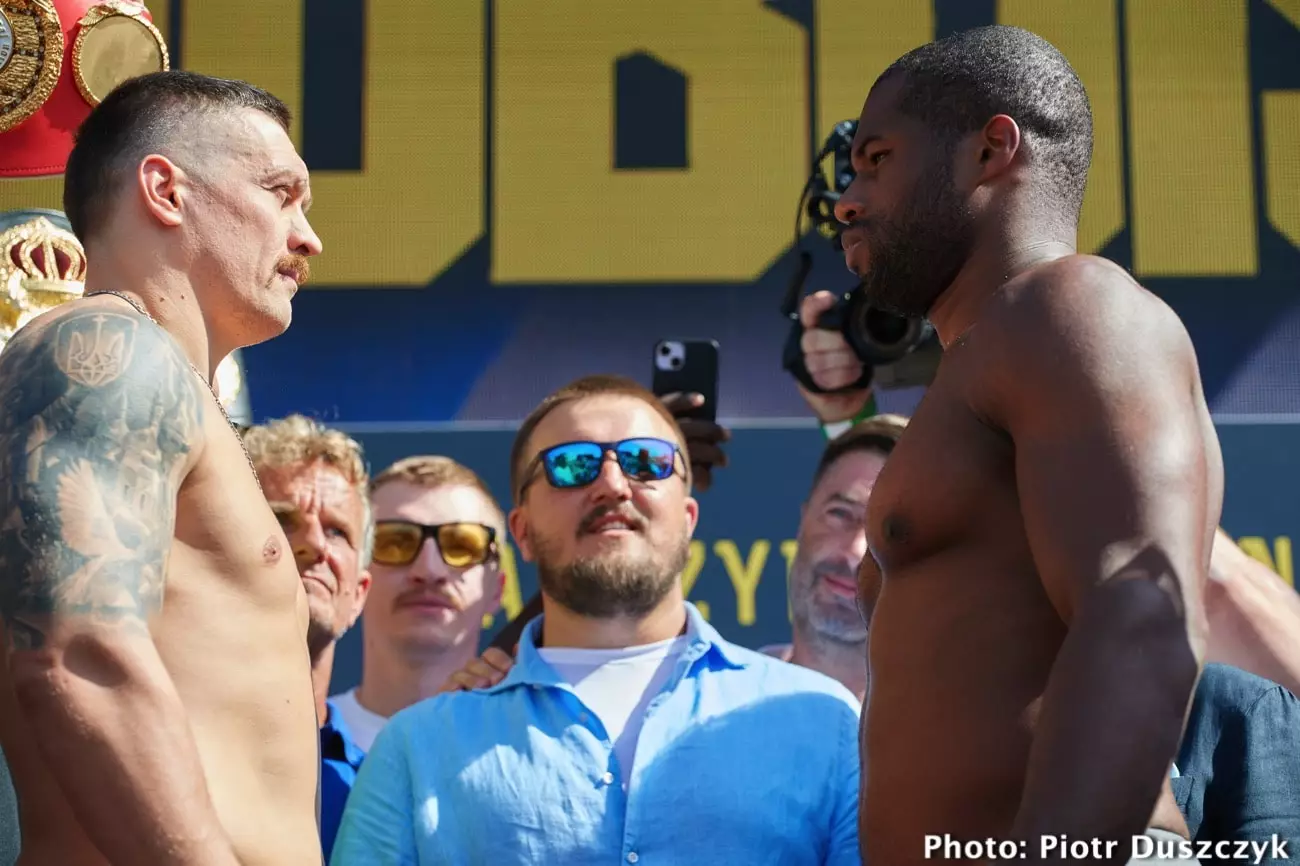Daniel Dubois, the 27-year-old British heavyweight, has recently reached a compelling juncture in his boxing career. With the echoing cheers from his decisive knockout victory over Anthony Joshua still resonating, Dubois stands at a crossroads, eager to reclaim his lost pride. This resurgence is not just about triumph; it’s a passionate quest to “right the wrong” following his devastating loss to Oleksandr Usyk last August in Poland. After being stopped in the ninth round during their initial encounter, Dubois’s aspirations for redemption are palpable, not only for himself but for his team and supporters who have vested their hopes in him.
Dubois’s emphatic win against Joshua reignited discussions around his boxing prowess, showcasing his raw power and undeniable skill. However, this match served a dual purpose—while it validated his strength in the ring, it simultaneously intensified his desire to avenge the controversial defeat against Usyk, the reigning heavyweight champion holding all major belts.
Central to the narrative of Dubois’s potential rematch with Usyk is the ongoing controversy surrounding their first bout. Don Charles, Dubois’s emotionally charged trainer, has been vocal about his grievances regarding the low blow incident that led to a stoppage in the fifth round. Charles’s characterizations of Usyk have been striking and decidedly harsh—calling him a “fake, a liar, and a cheat.” Such accusations, cloaked in emotion, stem from Charles’s belief that Dubois’s point of contact was indeed a legal body shot rather than a foul.
The incident can be visualized as a turning point, etched forever in the minds of boxing fans. That moment when Dubois appeared to have Usyk on the ropes—only for the referee to signal a respite for the champion—ignited a whirlwind of debate. In the annals of sport, especially combat sports, clarity often eludes even the keenest observers, as subjective interpretations can distort a seemingly straightforward incident. For Charles, this situation encapsulates the essence of what he believes is a broader narrative of dishonesty surrounding Usyk’s conduct in the ring.
Charles’s raw and impassioned rhetoric certainly fuels the fire for a potential rematch. He asserts that Usyk’s actions in the aftermath should merit critical scrutiny, especially his self-proclaimed moral compass as a God-fearing man. Charles compellingly challenges Usyk to reconcile his religious declarations with his perceived actions in the ring, igniting both a moral and athletic dialogue. “If you believe in the same God that I do,” he states emphatically, “one of the ten commandments is you cannot cheat.” This moral posturing adds a layer to their rivalry, depicting it as not just a clash of fists, but of values.
Yet, the emotional intensity of Charles’s retorts beckons an important question: can such fervor overshadow the need for sportsmanship? The boxing world thrives on rivalries, and this narrative presents a choice between competitive spirit and personal vendetta. Emotions can run high, but it is the moments of restraint and respect that often define true champions.
Considering the aftermath of their first bout, the anticipated epic rematch between Dubois and Usyk could potentially be a defining moment for both fighters. For Dubois, it is an opportunity to silence critics and avenge a painful blemish on his record; for Usyk, it serves as a test of his mettle against an opponent hungry for redemption.
The question now lingers: will Usyk take the challenge head-on? Engaging with Dubois again would not only settle the controversy but could also solidify Usyk’s status as a champion committed to confronting adversity. However, with Dubois’s burgeoning confidence, the stakes are higher than ever, promising a thrilling encounter that could reframe the narrative of heavyweight boxing.
In an arena where high-stakes rivalries signal the heartbeat of the sport, a potential Dubois-Usyk II fight stands out as an essential chapter—one that blends passion, power, and purpose, assuring that the world of boxing remains as compelling as ever.

